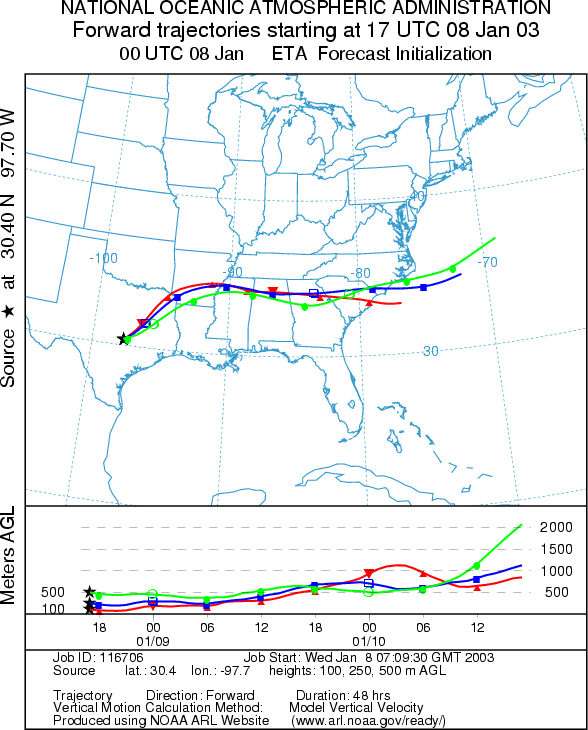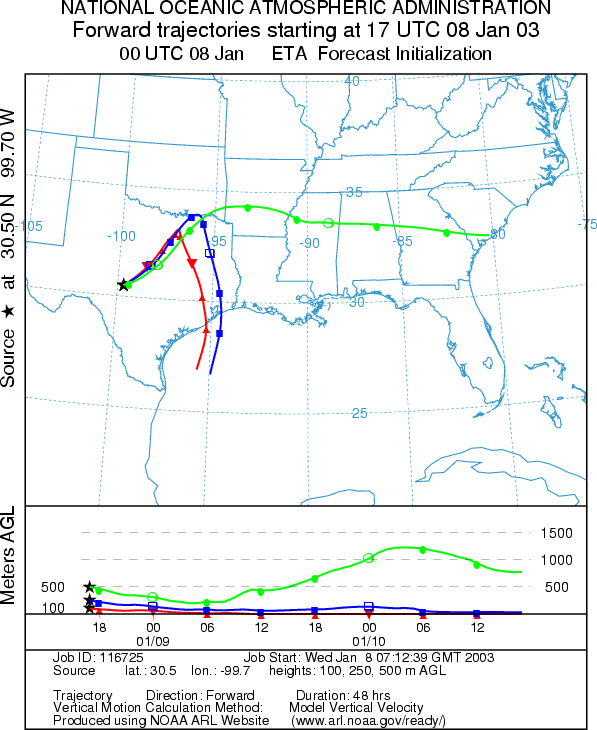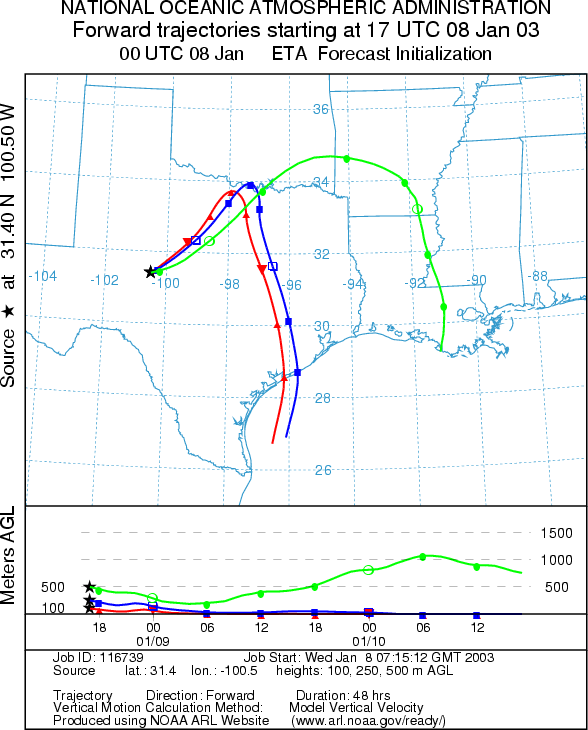The
Mountain
Cedar Pollen Forecast
Metropolitan Area |
Exposure Risk |
|
|
Severe |
|
|
Moderate |
|
|
Moderate |
Date Issued:
Mountain Cedar Location(s):
Regional Weather: Tuesday, January 8 TX/OK/AR: High pressure is entrenched over southeastern Texas bringing clear skies and very mild conditions across the region throughout the day today and into the evening. Tonight the next push of cold arctic air will start to move into the region from the north dropping temperatures by 10 to 12 degrees in northern localities by tomorrow. High temperatures across the southern area of the Edwards Plateau will reach the low 70s today with sunny skies and low humidity. Winds will be light across the region and out of the southwest. Low temperatures overnight will be in the upper 40s to low 50s. On Thursday, cooler temperatures will begin to work their way into the area dropping temperatures by 10 to 12 degrees as far south as Lubbock and Dallas. With these changes will come a shift in the winds to out of the north. Areas southward will see less than a 5 degree reduction in temperatures tomorrow. Overall winds will be moderate to strong in areas where the greatest temperature differences occur. In Oklahoma, conditions will be similar with warm mild, sunny conditions today. Temperatures will be in the mid to upper 60s across the region. The colder air will begin to move into the area this afternoon and into tomorrow dropping temperatures significantly. Temperatures overnight will be in the upper 40s but will rise by less than 10 degrees for highs on Thursday. Winds will shift from the predominantly light to moderate conditions today from the southwest to stronger northerly breezes overnight and into tomorrow.
Trajectory weather: The air mass trajectories from eastern Edwards Plateau of Texas move to the northeast towards southern Arkansas on light winds associated with the large high pressure over the region. The western Texas trajectories also move towards the northeast but the lower elevation winds stay within the state boundaries as they are turned abruptly southward as colder air moves into the region. The trajectories from the western area of the Plateau show sinking atmospheric conditions as they move relatively small distances compared to the trajectories from the eastern region that show buoyant atmospheric conditions. The eastern trajectory shows characteristics that are associated with entrainment and movement of pollen away from the source areas , versus the western trajectories that move along or near the ground, conditions that tend to filter out any pollen entrained within the air mass. Conditions at the sources will be warm and dry with light winds and clear sunny skies. The trees are nearing the peak of the pollen release season so significant pollen release is expected.
OUTLOOK: *** Moderate Threat today ***favorable conditions for pollen release today. Sunny skies, low relative humidity and warm temperatures with light winds result in favorable conditions for pollen release. The trees are nearing their peak release period so significant pollen release is expected across the population. Trajectory characteristics from the western side of the Edwards Plateau show poor travel conditions with the air masses sinking and moving along the ground. The trajectories are turned abruptly as cold air moves back into the region overnight. The eastern trajectory shows characteristics associated with significant amounts of pollen entrainment and travel. For these reasons a moderate threat exists, which should more accurately be described as mixed conditions that will vary from east to west. All trajectories move initially towards the northeast so a severe threat exists for Dallas/ Ft. Worth, and northeastern Texas communities. In addition areas of southern Arkansas should see pollen in their atmosphere during the afternoon and overnight.
Trajectory Start (s)
(shown by *
on map):

Junction, TX


Prepared by: Peter
K. Van de Water (Department of Geoscience,
Questions: Aerobiology Lab e-mail: pollen@utulsa.edu
Return to Forecasting Home Page